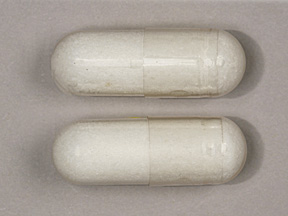
L-carnitine Coupons & Savings Card – Discount Prices from $10.20
Levocarnitine, also known as Carnitor, is a prescription medication designed to address low levels of carnitine in the body, a condition known as carnitine deficiency. This deficiency can arise when the body is unable to effectively convert dietary fats into energy, impacting muscle and heart health. Levocarnitine helps supplement carnitine levels, supporting the conversion of fats into energy, which is crucial for maintaining muscle and heart function.
The medication is available in tablet and oral solution forms, taken by mouth several times a day. It is worth noting that the oral form is not recommended for patients undergoing dialysis due to severe kidney disease; in such cases, the injectable form is preferred. Common side effects may include nausea, vomiting, and stomach cramps.
Patients should consult their healthcare provider before using levocarnitine, especially if they are on specific medications or have underlying health conditions. It's important to use levocarnitine strictly under medical supervision to avoid complications. Additionally, some over-the-counter products, like vitamin Bt, contain a mixture of levocarnitine and D-carnitine and should not be used to treat serious deficiencies, as they can interfere with levocarnitine's effectiveness.
Always consult with a doctor or pharmacist for detailed information on the safe use of levocarnitine and to ensure it is appropriate for your specific health needs. The FDA has not reviewed this product for safety or effectiveness.
Our coupons are free to use. Before paying, show the pharmacist your L-carnitine savings card to get your free discount. Use our filters below to edit the prescription box to match your needs. The L-carnitine prices will update based on your prescription needs. Above our L-carnitine coupons, you can change your location to see pharmacy prices and costs in other areas. We're here to help you buy L-carnitine at the lowest price with our prescription discount card.
My prescription
Edit
500MG, L-carnitine (60 Capsules)
Select pharmacy

Albertsons
$10.20
COUPON PRICE
Walgreens
$14.97
COUPON PRICEL-carnitine savings card
Show this card to your pharmacist
Albertsons
$10.20
BIN
ID
PCN
GRP
019876
LHAF24A238
CHIPPO
LHX
Powered by
Levocarnitine, also known as Carnitor, is a prescription medication designed to address low levels of carnitine in the body, a condition known as carnitine deficiency. This deficiency can arise when the body is unable to effectively convert dietary fats into energy, impacting muscle and heart health. Levocarnitine helps supplement carnitine levels, supporting the conversion of fats into energy, which is crucial for maintaining muscle and heart function.
The medication is available in tablet and oral solution forms, taken by mouth several times a day. It is worth noting that the oral form is not recommended for patients undergoing dialysis due to severe kidney disease; in such cases, the injectable form is preferred. Common side effects may include nausea, vomiting, and stomach cramps.
Patients should consult their healthcare provider before using levocarnitine, especially if they are on specific medications or have underlying health conditions. It's important to use levocarnitine strictly under medical supervision to avoid complications. Additionally, some over-the-counter products, like vitamin Bt, contain a mixture of levocarnitine and D-carnitine and should not be used to treat serious deficiencies, as they can interfere with levocarnitine's effectiveness.
Always consult with a doctor or pharmacist for detailed information on the safe use of levocarnitine and to ensure it is appropriate for your specific health needs. The FDA has not reviewed this product for safety or effectiveness.
Our coupons are free to use. Before paying, show the pharmacist your L-carnitine savings card to get your free discount. Use our filters below to edit the prescription box to match your needs. The L-carnitine prices will update based on your prescription needs. Above our L-carnitine coupons, you can change your location to see pharmacy prices and costs in other areas. We're here to help you buy L-carnitine at the lowest price with our prescription discount card.
More prescriptions for carnitine deficiency
coupons from$4.21Save 83%
coupons from$9.44Save 17%
coupons from$4.21Save 83%
coupons from$4.21Save 83%
More prescriptions for carnitine deficiency
Carnitor Save 83%coupons from $4.21
Levocarnitine L-tartrate Save 17%coupons from $9.44
Carnitor Sf Save 83%coupons from $4.21
Levocarnitine Save 83%coupons from $4.21
L-carnitine dosage forms
Use our L-carnitine 500MG coupon with prices from $10.20 for 60 Capsules. You can also use our L-carnitine 500MG coupon with prices from $9.12 for 36 Capsules. We have a L-carnitine 500MG coupon with prices from $9.75 for 50 Capsules. You can use our L-carnitine 500MG coupon with prices from $12.00 for 100 Capsules.
Dosage Quantity Price from Per unit 500MG 60 Capsules $10.20 $0.17 500MG 36 Capsules $9.12 $0.25 500MG 50 Capsules $9.75 $0.20 500MG 100 Capsules $12.00 $0.12
| Dosage | Quantity | Price from | Per unit |
|---|---|---|---|
| 500MG | 60 Capsules | $10.20 | $0.17 |
| 500MG | 36 Capsules | $9.12 | $0.25 |
| 500MG | 50 Capsules | $9.75 | $0.20 |
| 500MG | 100 Capsules | $12.00 | $0.12 |
